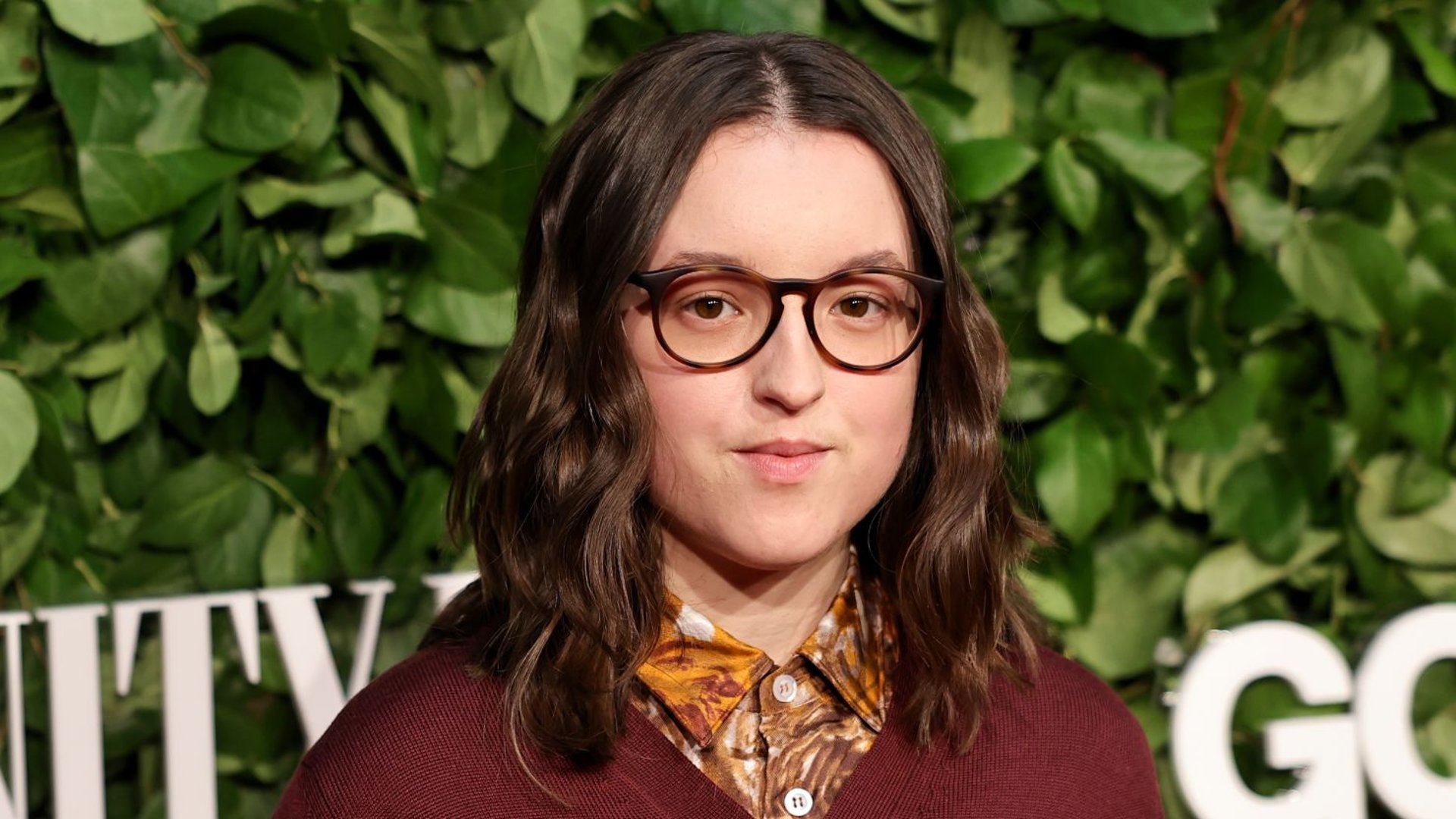“Your home for fearless film reviews, the latest entertainment news, and unfiltered movie rants.”
Bella Ramsey Slams Hollywood: “They Want Me to Look Like a Child” — The Industry’s Obsession With Innocence Exposed
Bella Ramsey is calling out Hollywood’s obsession with youth and innocence. In a bold interview, the non-binary star of The Last of Us exposes how the industry pressures young actors to stay "childlike"—and why it’s time for change.
The Tipsy Critic
5/26/2025

Bella Ramsey, one of Hollywood’s most promising young stars, is making waves not just for their extraordinary talent but for their fearless critique of the entertainment industry’s long-standing obsession with youth and innocence. Known widely for their breakout roles as Lyanna Mormont in Game of Thrones and Ellie in HBO’s The Last of Us, Ramsey has quickly become a symbol of a new generation of actors demanding authenticity and rejecting Hollywood’s limiting stereotypes.
In a recent candid interview, Ramsey dropped a bombshell that laid bare the industry's problematic fixation: “They want me to look like a child.” This blunt admission shines a harsh light on how young actors—especially those breaking traditional gender norms—are pressured to conform to infantilized images that don’t reflect their true selves or evolving maturity.
Hollywood’s Dangerous Obsession With Innocence
For decades, Hollywood has celebrated youthfulness, often equating it with purity and innocence, particularly when casting young female or gender non-conforming actors. But beneath this seemingly harmless preference lies a stifling demand that constrains artistic growth and enforces rigid, unrealistic standards. Bella Ramsey’s complaint that the industry wants them to “look like a child” is far from isolated—it’s emblematic of a systemic problem.
Why is innocence so highly prized? Historically, innocence has been romanticized as the ideal state for young actors to portray—a blank slate untouched by the complexity of adulthood. This obsession manifests in casting decisions, wardrobe, makeup, and the roles themselves, which often typecast actors into “sweet,” “vulnerable,” or “pure” characters rather than allowing them to explore a full range of emotions and experiences.
Media scholar Dr. Lisa K. Adams explains:
“Infantilization in Hollywood doesn’t just limit characters; it limits the actors behind them. By forcing young talent to maintain a facade of eternal youth and innocence, the industry restricts their artistic expression and perpetuates unrealistic cultural narratives about youth and gender.”
Ramsey’s experience exposes how this infantilization can feel suffocating for actors who are trying to grow personally and professionally. “It’s like they want to freeze you in a moment of childhood, even after you’ve grown up,” Ramsey said. This isn’t just about aesthetics — it’s about control and denying young performers the complexity of their true identities.
The Added Layer of Gender Identity
For Bella Ramsey, who openly identifies as non-binary and uses they/them pronouns, the pressure to maintain a “childlike” appearance collides head-on with Hollywood’s binary gender expectations. Hollywood’s traditional norms have struggled—and often failed—to accommodate non-binary or gender-nonconforming identities, which don’t fit neatly into the established male/female categories.
Ramsey has spoken at length about how this creates a constant tension. In a 2023 interview with The Guardian, they shared:
“There’s an unspoken rulebook for how actors should look and behave, but that rulebook doesn’t include people like me. When you don’t fit into the typical boxes, it’s exhausting. You’re constantly expected to present yourself in ways that feel ‘safe’ or familiar to others, instead of being true to who you really are.”
This pressure extends beyond wardrobe and makeup to the kinds of roles offered. Non-binary actors often face a narrow selection of parts, typically relegated to token characters or forced into roles written strictly for cisgender male or female performers. Ramsey’s refusal to conform to these limited options challenges Hollywood to rethink casting and storytelling in more inclusive, authentic ways.
Breaking the Mold: Bella Ramsey’s Career as a Case Study
Ramsey’s rise to prominence offers a powerful example of how one actor can defy Hollywood’s infantilization and gendered expectations. Their portrayal of Lyanna Mormont in Game of Thrones was a game-changer—a fierce, commanding young leader whose presence packed far more emotional weight and maturity than typical “youthful” roles. Lyanna was a fan favorite precisely because she shattered the mold of the helpless or overly innocent young female character.
Ramsey continued to push boundaries with their role as Ellie in HBO’s The Last of Us, a character marked by resilience, vulnerability, and complexity. Ellie is not a simplified “childlike” figure; she is a fully realized human being navigating a brutal world. Ramsey’s performance earned critical acclaim and showcased how young actors can portray raw, mature emotions without sacrificing authenticity.
This trajectory illustrates Ramsey’s determination to be recognized for their full range as an artist, not confined to Hollywood’s limited definitions of youth or gender.
Industry Response and the Momentum for Change
Bella Ramsey’s outspoken criticism has resonated widely, sparking conversations across social media, entertainment circles, and advocacy groups. Fellow non-binary actor and activist Asia Kate Dillon praised Ramsey’s candor, tweeting:
“Bella is shining a spotlight on a problem many of us face. Hollywood’s fixation on ‘innocence’ and ‘childlike’ appearances is outdated and damaging. It’s time for change.”
Other actors and industry insiders have echoed this sentiment, emphasizing the need for Hollywood to embrace a broader spectrum of identities and experiences. While progress is slow, casting directors and producers are beginning to acknowledge that audiences want more authentic, diverse storytelling.
Yet, systemic inertia remains. The entrenched power structures and commercial pressures that drive Hollywood still favor familiar tropes and easy categorizations. As Ramsey’s experience shows, breaking out of these molds requires courage, persistence, and public advocacy.
Why This Conversation Matters
The industry’s infantilization of youth and insistence on narrow gender norms have consequences far beyond Hollywood sets. Because film and television shape cultural narratives, the ways young people are portrayed on screen influence societal attitudes towards age, maturity, and gender identity.
When actors like Bella Ramsey push back, they’re not only fighting for their own authenticity but also for the millions of viewers—especially young, marginalized individuals—who need to see themselves reflected in honest, complex ways.Ramsey’s critique challenges Hollywood to evolve, encouraging an environment where actors can grow naturally without being trapped by unrealistic demands.
Looking Ahead: What’s Next for Hollywood?
Bella Ramsey’s bold words raise critical questions for the future of Hollywood. Can the industry dismantle its obsession with infantilized innocence? Will it create space for non-binary and gender non-conforming actors to express their full selves?
Ramsey remains hopeful. “I want to be known for who I really am,” they said. “Not for fitting into some childish ideal that others want to impose on me.”As audiences demand more authentic representation, and as trailblazers like Ramsey lead the charge, the possibility of a more inclusive Hollywood feels increasingly within reach.
➡️ If you’re tired of Hollywood’s same old cookie-cutter roles for young stars, Bella Ramsey’s callout is a wake-up call you can’t ignore.
➡️ Watch Ramsey’s fearless push for real, non-binary representation—this is the future of authentic storytelling breaking through industry BS.
➡️ Expect to see more actors following their lead, demanding roles that reflect complexity over childish clichés.
Keep following The Tipsy Critic for the latest no-fluff takes on Hollywood’s changing landscape and the voices shaping it.

As an Amazon Associate, I earn from qualifying purchases.
